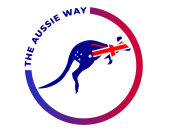
Australia confirmed on Sunday that two people arriving from southern Africa over the weekend had tested positive for the Omicron variant, adding to a growing number of countries fighting the highly infectious strain.
Health officials in New South Wales, the most populous state, said both passengers had arrived in the state capital, Sydney, on Saturday evening and tested positive for COVID-19 late that night before genome sequencing confirmed the Omicron variant on Sunday.
A total of 12 passengers who came from South Africa on the same plane have been quarantined despite their negative coronavirus test results, they added.
Australia is one of several countries that has closed its borders to those coming from over half a dozen Southern African nations, namely South Africa, Namibia, Zimbabwe, Botswana, Lesotho, Eswatini, Seychelles, Malawi, and Mozambique, over fears of the new variant.
Both people were asymptomatic, fully vaccinated and in quarantine, said NSW Health. Another 12 passengers from southern Africa were also in 14 days of hotel quarantine, while around 260 other passengers and aircrew have been directed to isolate.
Close contacts will be contacted regularly, and compliance checks will be undertaken, the health department said in a statement. New Zealand announced fresh measures from Sunday evening.
New Zealand announced it was restricting travel from nine Southern African countries because of the threat posed by the variant, and Japan widened its border controls to include more countries from the region.
Tourist-dependent Thailand, which only recently began loosening its tight border restrictions to leisure travelers from certain countries, announced a ban of its own on visitors from eight African countries. Similar restrictions took effect in the business hub of Singapore, which barred entry and transit to anyone with a recent history of travel to seven southern African nations.
COVID-19 Response Minister Chris Hipkins said late on Saturday that only New Zealand citizens will be allowed to travel into the country from the nine southern African nations.
Citizens would be required to stay in managed isolation for a full 14 days, as well as undergo testing, he said in a statement.
Australia early this month eased its international border restrictions for the first time during the pandemic, allowing fully vaccinated residents to return to the country without quarantine after higher vaccination levels.
Here’s what the stats have to say
If we compare last week’s figures from Monday through to Thursday to the same for this week, we can see that more coronavirus cases have been confirmed so far this week.
By Thursday last week, 23 new cases had been reported.
As of Thursday this week, 71 new cases have been reported so far, with three days of figures still to come.
A total of 62 new cases were confirmed for the whole of last week, meaning we have surpassed last week’s total in just four days.
Chief Nursing and Midwifery Officer Alison McMillan explained why we are still seeing so many new cases in a daily coronavirus briefing on Wednesday. She thinks it is important to remember, in the context, that we are seeing about 6,500 people, Australians, returning to our shores every week.
And so while these numbers are a little more than we have seen in recent days, we are seeing people return from places where there is a very high prevalence of COVID-19 outbreak.
And so we should continue to potentially expect to see people returning and remember, everyone is quarantining and they are strictly adhering to those 14 days. She said there had been just a little rise in new case numbers this week.
In April, a total of 17,050 trips were made by Australian residents returning home from short-term visits overseas, according to the Australian Bureau of Statistics (ABS).
The media is yet to release its May figures, but the April data shows India was the most popular destination country, accounting for 15 percent of all those returning from overseas for the month.
While much remains to be learned about the new variant, researchers are concerned that it may be more resistant to the protection provided by vaccines and could mean that the pandemic lasts for longer than anticipated.
Many countries have slapped restrictions on various southern African countries over the past couple of days, including Brazil, Canada, the European Union, Iran, and the US, in response to warnings over the transmissibility of the new variant.
This goes against the advice of the World Health Organization, which has warned against any overreaction before the variant is thoroughly studied.
